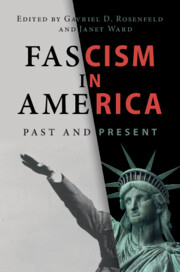Scholarship on lesbian, gay, bisexual, transgender, and queer (LGBTQ) politics argues that political claims, such as access to the military and marriage, are most effective when representatives from the group articulate that the desire for inclusion and participation in those institutions is similar to the desires held by their straight and nontransgender counterparts. This strategy of assimilation has yielded many positive legal changes. And yet the Donald Trump administration marks a period in which these gains have been repeatedly challenged and particular segments of the LGBTQ group are increasingly under attack. This article offers a preliminary analysis of how LGBTQ politics has been impacted by the 2016 election. Using a historical case study of LGBTQ identity construction and agenda development during the second half of the 1990s, I ask: how might the LGBTQ group mine its recent history for clues to rethink its political agenda and political strategies? Having shown that opportunities to advance a different movement—one focused on more radical, broadly inclusive changes—were bypassed during this period, I conclude by putting forward several recommendations for contemporary LGBTQ movement building and resistance strategies.


